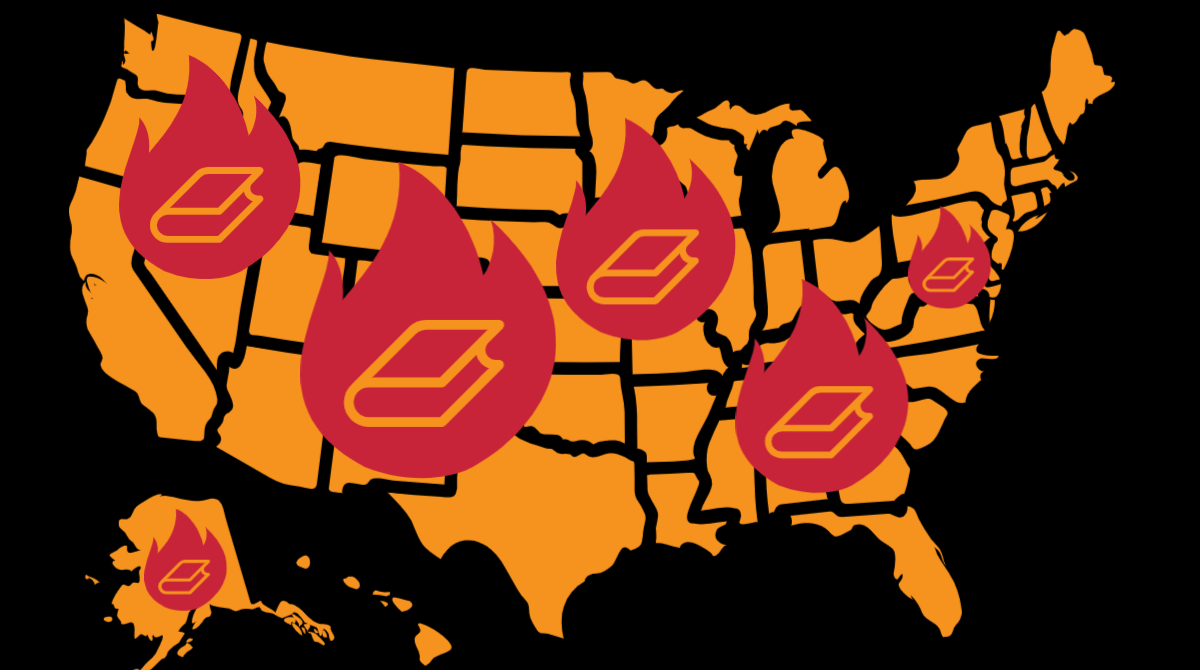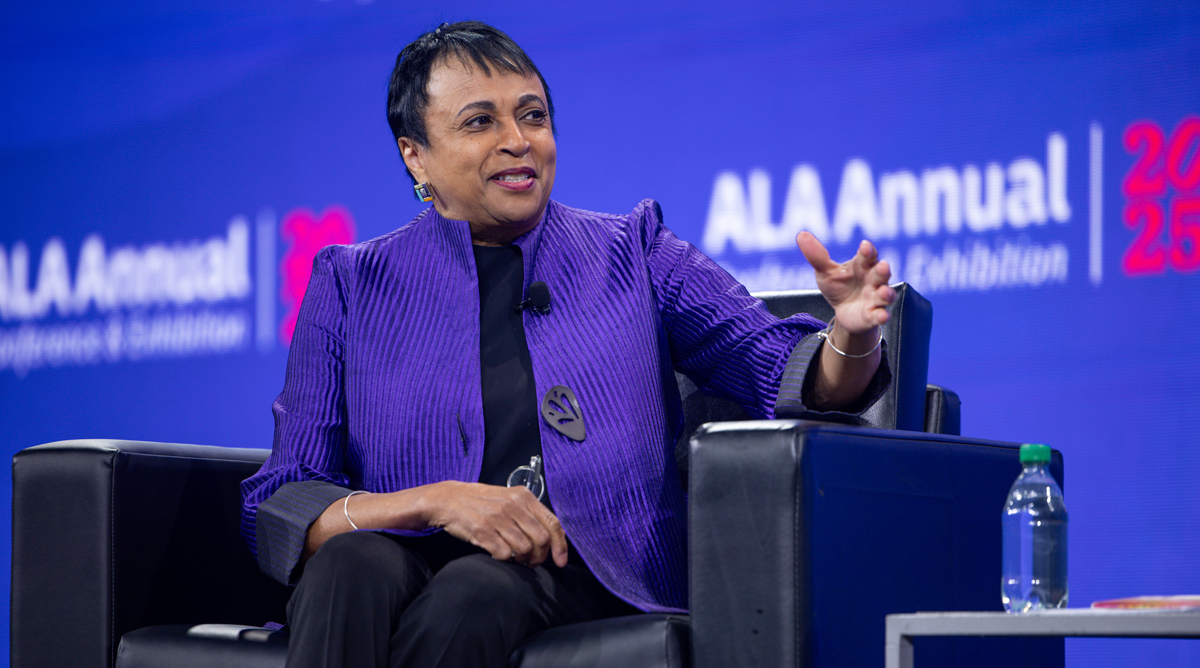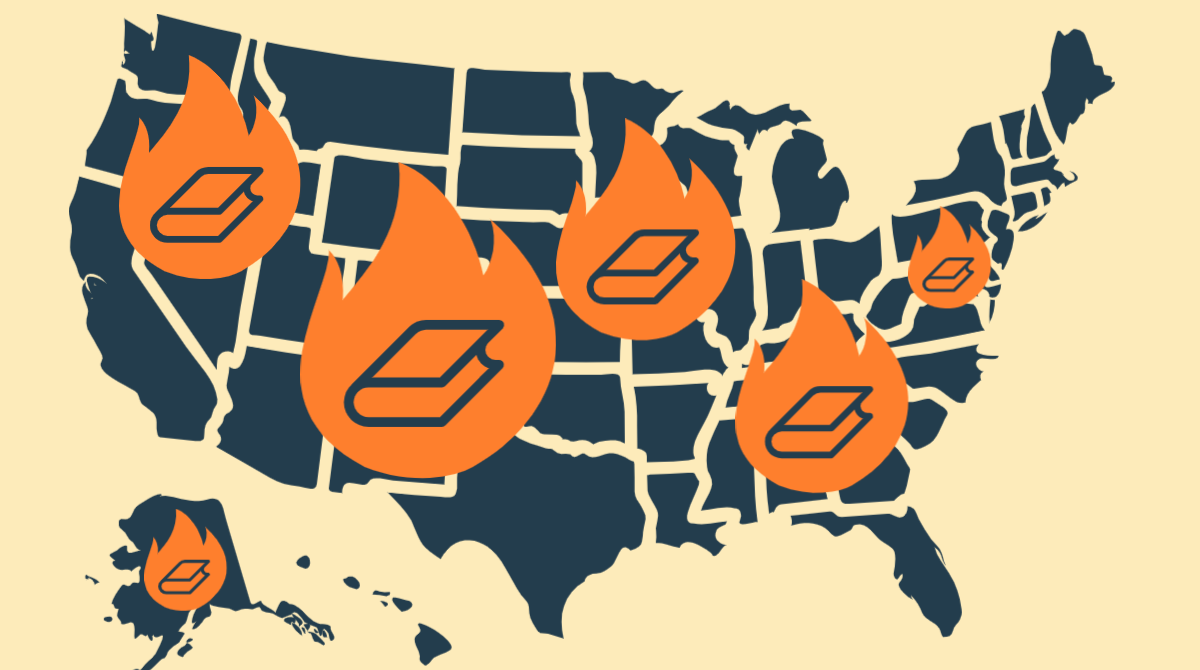Book challenges and bans are increasing in libraries and schools throughout the United States. To help spread the word about these activities and efforts to combat them by librarians, parents, students, politicians, and concerned citizens, I Love Libraries will highlight several stories each week on the current crisis. This roundup includes reports from Florida, Georgia, and Texas, as well as news about banned book clubs and more. Please share widely.
Book challenges mount in Florida schools, including the Bible
Multiple counties in Florida have come under scrutiny for decisions to remove books from its schools, reports The Tampa Bay Times.
Walton County removed two dozen books from classrooms on the recommendation of the conservative Florida Citizens Alliance, a Naples-based group that has been working for years to get what it considers pornography out of the reach of children. Superintendent Russell Hughes told the Northwest Florida Daily News that he did not read a single paragraph of any of the books before pulling them from circulation.
In Polk County, the school district is working its way through nearly two dozen questioned titles, with review committees recommending keeping another two of them: Toni Morrison’s The Bluest Eye and Tricks by Ellen Hopkins. And in Broward County, a man who said he’s an atheist has called on 14 Florida school districts to remove the Christian Bible from their shelves.
Georgia governor expected to sign book banning bill that may have national implications
Georgia Governor Brian Kemp is expected to sign legislation that would ban educational literature deemed inappropriate for children, reports The Grio. Kemp’s signature on Senate Bill 226 would require school boards to screen and remove books from libraries following a review of complaints from parents that a particular title is obscene and “lacking in serious literary, artistic, political or scientific value for minors.”
School principals would have seven business days to complete this process and three additional days to decide if the book should be removed from the school’s library. The banned titles must then be posted on the local school board’s website within 15 business days of the principal’s determination. School boards can appeal the decision within 30 calendar days.
Texans sue over book censorship
A group of Llano County, Texas, residents who are “card-carrying members” of their local library system are suing county officials, claiming they engaged in censorship in violation of the First Amendment when they banned a slew of books the officials deemed inappropriate, reports NPR.
The library patrons filed the federal lawsuit against the county judge, county commissioners, and library officials. The group says that the county government’s stated purpose of removing “pornographic” material from public libraries was actually a campaign of political and religious censorship.
More than half of states have banned books as anti-LGBTQ+ and anti-race education laws spread
School districts in 26 states have banned or opened investigations into more than 1,100 books, according to an April report from PEN America, a literary and free expression advocacy organization that compiled data on such bans from July 2021 to March 2022.
NBC News reports that PEN America counted actions that led to the removal or restriction of previously accessible books for at least a day, and found that Florida, Pennsylvania, and Texas lead the country in bans. The three states have had more than 1,300 instances of book bans, or 87% of the country’s roughly 1,500 banning incidents.
Book banning efforts are inspiring readers to form banned book clubs
The recent wave of book challenges across the US has led to the formation of several banned book clubs, reports CNN. The groups have formed in response to a growing push from the right to control what titles young people have access to. And it points to an ironic effect: The more certain books are singled out, the more people want to read them.
“This conservative pushback is actually generating a lot of interest in books that might not be something the average student is being exposed to otherwise,” said Nicole Cardoza, founder and CEO of Reclamation Ventures, which founded the Banned Books Book Club. “[We want to] help connect more people to the stories that matter most-that reflect marginalized experiences that they might not hear otherwise.”
Take action
Alarmed by the escalating attempts to censor books? Here are five steps you can take now to protect the freedom to read.
- Follow news and social media in your community and state to keep apprised of organizations working to censor library or school materials.
- Show up for library workers at school or library board meetings and speak as a library advocate and community stakeholder who supports a parent’s right to restrict reading materials for their own child but not for allreaders.
- Help provide a safety net for library professionals as they defend intellectual freedom in their communities by giving to the LeRoy C. Merritt Humanitarian Fund.
- Educate friends, neighbors, and family members about censorship and how it harms communities. Share information from Banned Books Week 2021.
- Join the Unite Against Book Bans movement to learn what you can do to defend the freedom to read in your community.




